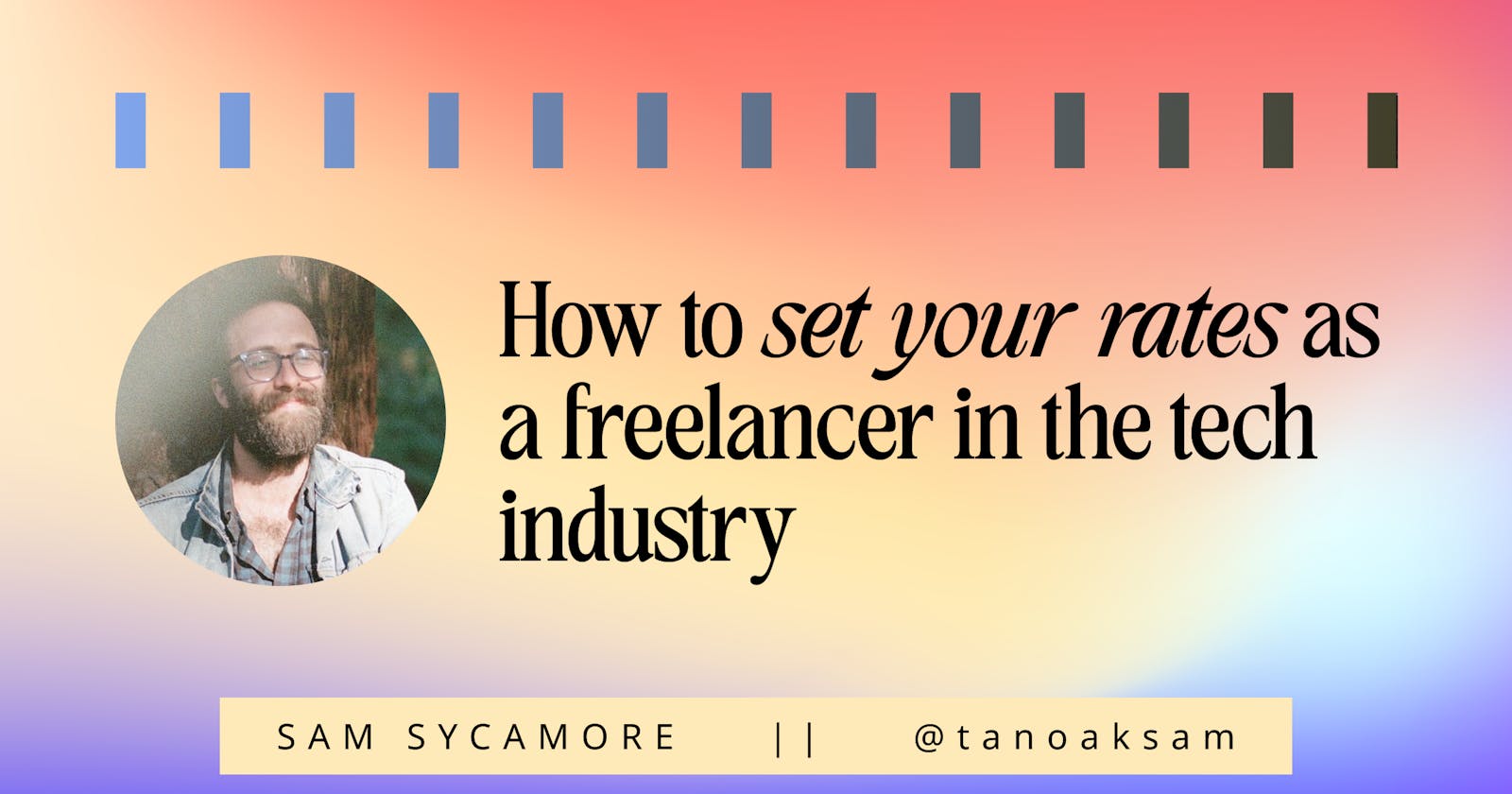How to Set Your Rates as a Freelancer
Here's how to determine how much you should charge for your work as a freelancer.
Why do freelancers have such a hard time explaining how they set their rates?
Because there are so many "it depends" factors at play in every new project!
what's your relationship with the client?
what is their budget?
is there potential for more work in the future?
would this deal open other doors elsewhere?
"Value" is subjective and complicated to quantify.
What is valuable - and how valuable it is - varies greatly between clients and projects.
For this reason:
Hourly rates are not ideal.
I'm not saying don't ever accept hourly payment - get paid for your work - but the kind of work that freelancers do doesn't always equate well with this measurement of value.
If I'm such a pro at what I do that it only takes me one hour to solve a problem that's costing your business $10k per month, does it make sense for me to be compensated $50 for one hour of my time?
Because it sure sounds like the skill that I bring to the table is worth up to $10k here.
You won't always have the power to negotiate in this way, of course.
Depending on the circumstances, your client might just say "we have $1000 to spend on this, what can you do with that?"
You're going to have to learn - the hard way - how to estimate your projects.
Nobody can do this step for you.
And the only way you can learn how to do it, is to do it.
You will make mistakes.
That's ok! Chalk 'em up to learning experiences.
Never cut corners or compromise on quality just because you miscalculated.
Scope creep is something else altogether - if the client asks for more stuff, they have to sign a new contract outlining the new scope of the project, including the new fees they will incur.
But if you accidentally end up paying yourself minimum wage because you bit off more than you could chew - it's still always in your best interest to deliver the best possible product.
To come up with an estimate or a proposal for a project, you will need to consider:
how much you would like to pay yourself
how much you might need to spend on materials, research, outsourcing
how much you will owe in taxes
how much time it will take
what is the going rate for this service
what is the value to the client
Those last 3 are worth considering in greater detail.
The Time it Takes
Remember when I said don't bill hourly?
Well, it's still good to have at least a fuzzy idea of how much you'd like to earn per hour for your services.
Freelancing is all about optimizing that equation - getting paid more, in exchange for fewer hours.
That's possible through experience, expertise and a solid reputation.
When I built my first website for a client, I only had a rough idea of how much time it would take - I figured 10-20 hours, hopefully not more.
At $1200, this time investment would earn me $60-120/hr.
I would've been happy with any number in that range!
In the end I walked away with about $75/hr before taxes. Not bad!
The Going Rate
This will be your primary limiting factor, depending on your services and your clientele.
When I was a music journalist, I was most commonly paid in free concert tickets and early access to new albums.
As a musician - mainly just free beer.
But if I knew enough about marketing to write something interesting in that field - there are publications that would happily pay me four or five figures for content that would be worth pennies in other industries.
If nobody pays more than $200 for the thing you do, you're going to have a really hard time convincing anyone to pay you $500, let alone $2000.
The Value to the Client
This is the true X-factor in the equation.
But the only way you can tap into it is if you're diligent about doing your research into the client and the market.
If the website you build for a local business owner could generate $100k in new sales this year -
You should be compensated accordingly.
It doesn't matter how long it takes.
What matters is how valuable your service is to the company.
That's tricky to quantify, as I mentioned before.
Before the work ever begins, then -
Your job is to demonstrate the value that you can offer.
It all comes down to knowing your worth, and knowing that what you do is valuable.
Don't know it yet?
That's fine, just get started - the confidence will follow.
And that's about as concise as I can be when it comes to explaining how I price freelancing projects!
If you enjoyed this piece and you want to keep up with my work, you can sign up for my email newsletter through this link. I promise to make every email something you will be excited to open!

